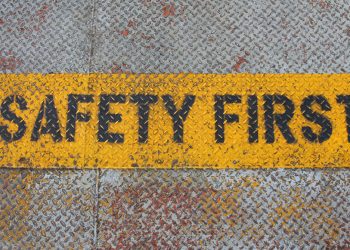Challenges faced and Lessons to be learned

Confidential Hazardous Incident Reporting Programme (CHIRP) has received a report regarding VHF communications and port operations.
Report text:
“This occurrence which I am reporting occurs frequently. I was the designated dock & channel pilot for the vessel A. Whilst preparing to sail, another vessel B was also manoeuvring.
“The problem wasthat both ships were using the same VHF channel for intership communication resulting in an order on one ship being received on the other, this could have caused serious damage or injury. The order given on the B and received on A was to Let go everything. I indicated to the master of A that I would prefer to give orders verbally without the use of the VHF and for other internal communication the master reverted to speaking in his native language (Not sure why he didn’t change channel). I feel that the use of VHF when manoeuvring is becoming more problematic and an accident caused either by two ships being on the same channel inadvertently, or by malicious intent from some third party is not far away.
“As vessels approach a port under pilotage the helm/engine/thruster controls can come thick and fast and when all these orders are being relayed on an open public VHF channel I feel its asking for trouble. A ‘wrong way’ helm order may not have time to be corrected on final approach to a lock or berth and an inappropriate engine order could be catastrophic for the bow tug and its crew. If radio must be used to communicate internally then I think we should be using a low power UHF set which is unlikely to invite public access. However personally, I think just shouting the order is usually the most positive and effective.
“Both vessels were using VHF, though which channel they were using I am not sure. It is not only the ships of these two companies which have similar bridge procedures. This is a very common practice.
CHIRP Comment
This report has been forwarded to the UK Maritime and Coastguard Agencys Port Marine Safety Code Steering Group. The UK Maritime Pilots Association has also indicated that it will survey its Members in order to try and ascertain to what extent others experience similar difficulties.
- Operational communications should be covered by a Competent Harbour Authoritys risk assessment.
- Ensuring radio communications are properly prefixed will limit the risks of misidentification.
- Using alternative communication methods should be considered e.g. Talkback systems.
Source:CHIRP



























































